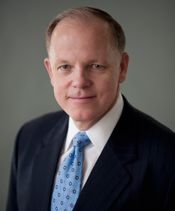By Joe Conway
WASHINGTON — Retired Gen. Doug Carver, who oversees chaplaincy ministry for Southern Baptists, shared concerns about “growing ignorance, insensitivity or intolerance regarding matters of religion” within the United States military at a House subcommittee hearing Wednesday, Jan. 29.
The hearing regarding religious accommodation in the U.S. military drew record crowds, including Southern Baptist congressmen. Current military leaders testifying at the hearing held that no substantiated instances of religious discrimination have taken place recently in the military, and that military chaplains of all faiths are free from any undue influence in the matters of faith practices or conscience.
But even if substantial instances have not occurred, Carver pointed toward a climate that is creating a more restrictive faith environment.
“I am concerned about the perceived tension, misinformation and suspicion regarding an individual’s free exercise of religion and conscience while serving as a member of the Armed Services,” Carver stated in testimony he submitted. Carver, Major General, U.S. Army, Retired, is executive director for chaplaincy at the North American Mission Board. A winter storm in Atlanta prevented Carver from attending, but his written testimony was entered into the record.
Other witnesses attending the Religious Accommodation in the Armed Services hearing included Virginia Penrod, Deputy Assistant Secretary of Defense for Military Personnel Policy; Brigadier General Bobby Page, Deputy Chief of Chaplains, U.S. Air Force; Brigadier General Charles R. Bailey, Deputy Chief of Chaplains, U.S. Army and Rear Admiral Upper Half Mark L. Tidd, Chief of Navy Chaplains, U.S. Navy.
During her testimony, Penrod indicated a recent teleconference with approximately 30 line chaplains revealed no religious freedom threats. She said command chaplains have not expressed any concerns.
“They have communication with their chaplains and their chaplains are not concerned regarding the free exercise or expression of their faiths.” Penrod added that the small sampling of chaplains on her call believe if they do encounter issues that those would be handled appropriately.
Carver acknowledged the military’s history of religious freedom protection.
“It was my personal experience of 38 years as a commissioned Army officer that the military placed the highest value on ensuring the religious liberty of our troops … The Department of Defense has historically, although sometimes too lengthy and cautiously, taken extraordinary measures to approve religious accommodation … Our troops, and most Americans, understand the tension that exists between the religious needs of a service member versus military necessity,” Carver said.
A number of House members addressed the hearing as well, including Southern Baptists Vern Buchanan (R, GA), Doug Collins (R, GA), Alan Nunnelee (R, MS), and Austin Scott (R, GA). Nunnelee expressed his concern for some of the reported activity taking place at military briefings held by the Defense Equal Opportunity Management Institute. He contended that anti-Christian statements were made during some of those briefings. Penrod said she had no reports of such statements and would have to investigate to give a proper answer for the record. House Armed Services Committee Chairman Buck McKeon (R, CA) also attended the hearing.
The consensus of most House members’ sentiments was summed up in comments from Congressman Brad Wenstrup (R, OH), a combat surgeon veteran of the Iraq War, and member of the House Armed Services Committee. “There is a fine line between accommodation and respecting all religions and restricting religious freedom and that’s the line we are walking on here. I want to caution you,” said Wenstrup.
Response to the hearing prompted subcommittee chairman Joe Wilson (R, S.C.) to call for an additional hearing on the matter within the next 60 days.
Matthew Hawkins, Coalition Director for the Southern Baptist Ethics and Religious Liberty Commission, attended the hearing. He helps foster collaboration with like-minded groups on issues of law and public policy.
“I thought the hearing went fairly well, considering the complex issue and limited time,” said Hawkins. “I believe the subcommittee sees a need for further hearings. We do not want the federal government imposing decisions of faith on anyone, and definitely not upon members of the military. There is much agreement that using a position of authority, such as a commanding officer’s, to attempt to push someone into a faith decision is equally unacceptable.”
Hawkins said he’s interested to see where the conversation goes and whether “inappropriate proselytizing” will ever be sufficiently defined, stating that the display of a religious text on an officer’s desk should certainly not be defined as inappropriate.
To view a video of the full hearing, read Carver’s complete testimony or find more information from the hearing, visit https://goo.gl/GnPhXb. To learn more about Southern Baptist chaplaincy, visit namb.net/chaplaincy.
Joe Conway writes for the North American Mission Board.
Published January 31, 2014
